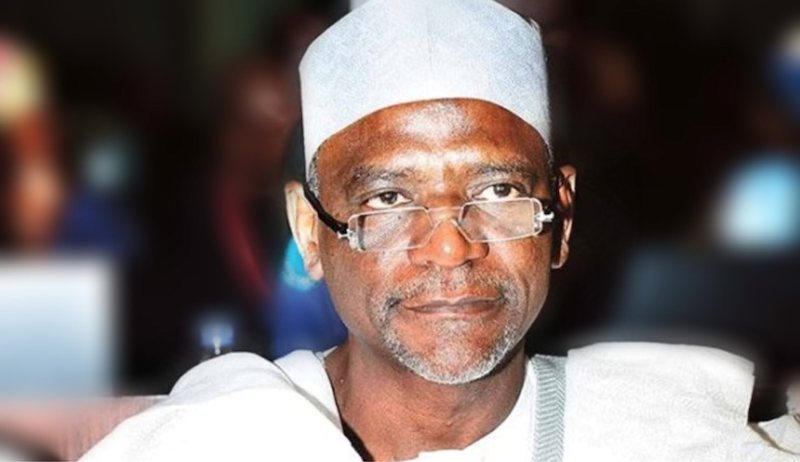EXCITING NEWS: TNG WhatsApp Channel is LIVE…
Subscribe for FREE to get LIVE NEWS UPDATE. Click here to subscribe!
Summary
Dennis Onakinor expresses deep misgivings about Nigeria’s newly formulated “National Language Policy,” which makes the “mother tongue” the “exclusive” medium of instruction in its primary schools. While observing that the policy could spell disaster for primary education in the country, he urges the government to maintain the status quo, which allows the concurrent use of English and the “mother tongue” as mediums of instruction.
Full Article
With the notable exception of Africa’s second most-populous country, Ethiopia, nearly every one of Africa’s 55 Independent sovereign states is a creation of European colonialism. From British colonialism emerged Nigeria, the continent’s most-populous state – a patchwork of over 360 ethnic groups speaking an estimated 625 different languages with innumerable dialects.
Both critics and apologists of colonialism acknowledge one incontrovertible fact: that one of the few benefits Africans derived from decades of rapacious colonial rule is the use of common European languages as mediums of communication among the disparate ethno-linguistic groups inextricably lumped together in various countries. A consequence of this development is the predominance of English and French as mediums of expression on the African continent, being the languages of the two dominant colonialists.
Truly, no other African state has benefited from the use of a common European language more than Nigeria, an African microcosm comprising a sizable portion of the continent’s estimated 2000 ethno-linguistic groups. Hence, there is no gainsaying the fact that the English language is an invaluable bridge between the country’s multiplicity of ethno-linguistic groups. And, as the official medium of communication and learning, English helped propel several Nigerians, including Literature Novel Laureate Wole Soyinka and Africa’s foremost novelist, the late Chinua Achebe, to the summit of global scholarship. Similarly, it has positioned the country on the path of scientific and technological advancement.
Against this backdrop, the November 30, 2022 announcement by the Nigerian Minister for Education, Mallam Adamu Adamu, that the government has formulated a “National Language Policy” making the “mother tongue” the “exclusive” medium of instruction in all primary schools, is seen by some people as an unwelcome step in the country’s educational development, while others have described it as an attempt to spell doom for its primary education.
Although details of the new National Language Policy are still sketchy, Mallam Adamu disclosed as follows in course of his press briefing: “The government has agreed now that henceforth, instruction in primary schools, the first six years of learning will be in the mother tongue … The decision is only in principle for now, because it will require a lot of work to implement … Though the policy has officially taken effect, full implementation will start when government develops instructional materials and qualified teachers are engaged … because we have 625 languages at the last count and the objective of this policy is to promote and enhance the cultivation and use of all Nigerian languages.”
In his bid to allay palpable fears that the new language policy is designed to perpetuate the socio-cultural dominance of the country’s estimated 622 minority ethnic groups by the majority Hausa, Igbo, and Yoruba groups, Mallam Adamu, who prides himself as a polyglot fluent in Hausa, English, French, Arabic, and Persian languages, explained that the mother tongue to be used in each primary school will be the dominant language spoken by the community where the institution is located, and that “all Nigerian languages are equal and will be treated as such.”
Laudable as the idea of revitalizing Nigerian indigenous languages may be, there are genuine concerns in respect of the new primary schools’ language policy: Have the requisite academic curricula been developed in respect of all identified 625 languages? How, when, and where will the teachers or instructors required for the policy implementation be recruited and trained? How and when will the textbooks and related materials for each of the 625 languages be designed and made available to the pupils? Is there an adequacy of qualified consultants and supervisors to ensure the desired level of quality? Etc.
Children, in course of primary education, develop the innate skills and aptitude required for knowledge acquisition in adulthood. In this connection, language precision comes into focus. Unlike universal languages such as English, most Nigerian indigenous languages lack scientific precision or terminological exactitude, as legions of scientific terms do not have corresponding terms. Hence, inexact descriptive statements usually apply. And, since knowledge acquisition is incremental and cumulative, any child who is not well-grounded at the primary school level is bound to struggle at the Junior Secondary School (JSS) level and beyond. In this light, the “exclusive” use of the “mother tongue” in primary schools runs the risk of breeding scientifically ignorant children.
The term “Mother Tongue” refers to an individual’s first language or parental language spoken at home. But, in Nigeria’s cosmopolitan environments inhabited by working-class families of diverse ethno-linguistic background, the application of the term is bound to be problematic due to the probability that the dominant language in a particular host community may not be the mother tongue of most of the primary school pupils of that community. Lagos, with its diverse multi-lingual inhabitants, exemplifies this scenario.
The problem of immobility of labour vis-a-vis primary school teachers could be triggered by the implementation of the new policy, as individuals find it difficult moving across ethno-linguistic boundaries in search of employment opportunities. The policy could also encourage labour migration from rural to urban locations, as primary school teachers seek certification in languages dominant in metropolitan environments like Lagos, Ibadan, Port Harcourt, Enugu, Kano, Kaduna, etc. A corollary to such rural-urban drift is the inadvertent perpetuation of Igbo, Hausa, and Yoruba dominance over other linguistic groups, thus making the policy a vehicle for hegemonism in the country.
Some critics assert that the likely beneficiaries of the new policy are the bureaucrats and contractors that would be involved in procurement and distribution of related textbooks and materials, while the casualties would be the public school pupils of poor parental background, who are unable to afford the fees payable in private schools. For, it doesn’t require a soothsayer to know that the policy will not be accorded any level of seriousness in private schools across the country; and that the disparity in quality of learning between private and public schools will become glaring at the JSS level, when private primary school leavers taught in English language effortlessly outshine those of public schools taught in the mother tongue.
It would be recalled that in November 2017, the Nigerian Army formulated a language policy that required its personnel to acquire certificated proficiency in Igbo, Hausa, and Yoruba languages, for the purpose of fostering “espirit-de-corps and national unity.” Suffice to say that the Nigerian House of Representatives swiftly ordered the immediate discontinuation of the policy on grounds that it served no useful purpose other than “infringing on the fundamental rights of the minority languages in the country.” Perhaps, the legislative body would also do well to review the new primary schools’ language policy in order to determine its suitability.
From the perspective of globalization, the supplanting of English by the “mother tongue” in Nigerian primary schools is an unwelcome development in an era that has seen the rest of the world gravitating towards the universal language, which has become the world’s foremost medium of communication and scientific research. Nigeria cannot afford to deny its primary school children the benefit of early acquaintance with the universal language, otherwise incalculable harm might have been done before the authorities come to the realization.
Recently, the Nigerian mainstream media was awash with reports of Nobel Laureate Wole Soyinka’s lamentation of the removal of the academic subject of “History” from Nigeria’s secondary schools’ curriculum, as he described the subject as “fundamental to self-knowledge, to identity, to understanding where you came from, and therefore where you might be headed.” Perhaps, the government might have had a rethink had Soyinka and other Nigerian intellectuals vehemently opposed the plan to remove the subject from the school curriculum back in 2009.
Taking cognizance of Mallam Adamu’s statement that the new language policy decision “is only in principle for now,” Soyinka and other reputable Nigerian intellectuals could still prevail on the government to retain the English language as a medium of instruction to be used concurrently with the mother tongue in primary schools across the country.
Cynics maintain that the new language policy is a calculated move on the part of the government to distract the Nigerian masses from their increasingly harsh conditions of existence. They argue that instead of engaging in shadow-chasing, the government should squarely address the country’s dire socioeconomic conditions, which have seen desperate Nigerian male and female youths risking dangerous migrant journeys across the Sahara Desert and the Mediterranean Sea, on their way to European uncertainty. Viewed from their perspective, the new policy is an unwelcome distraction.
In the seventies, as a primary school pupil in Esan land, one of Edo States’ ethno-linguistic communities, Yours Sincerely enjoyed the privilege of being taught by erudite teachers of Igbo and Yoruba origins. With the new language policy, primary school children of same community and elsewhere in the State may not be opportune to enjoy such a privilege, and Nigeria’s national unity may be worse for it.
- Dennis Onakinor, a global affairs analyst, writes from Lagos – Nigeria. He can be reached via e-mail at [email protected]









